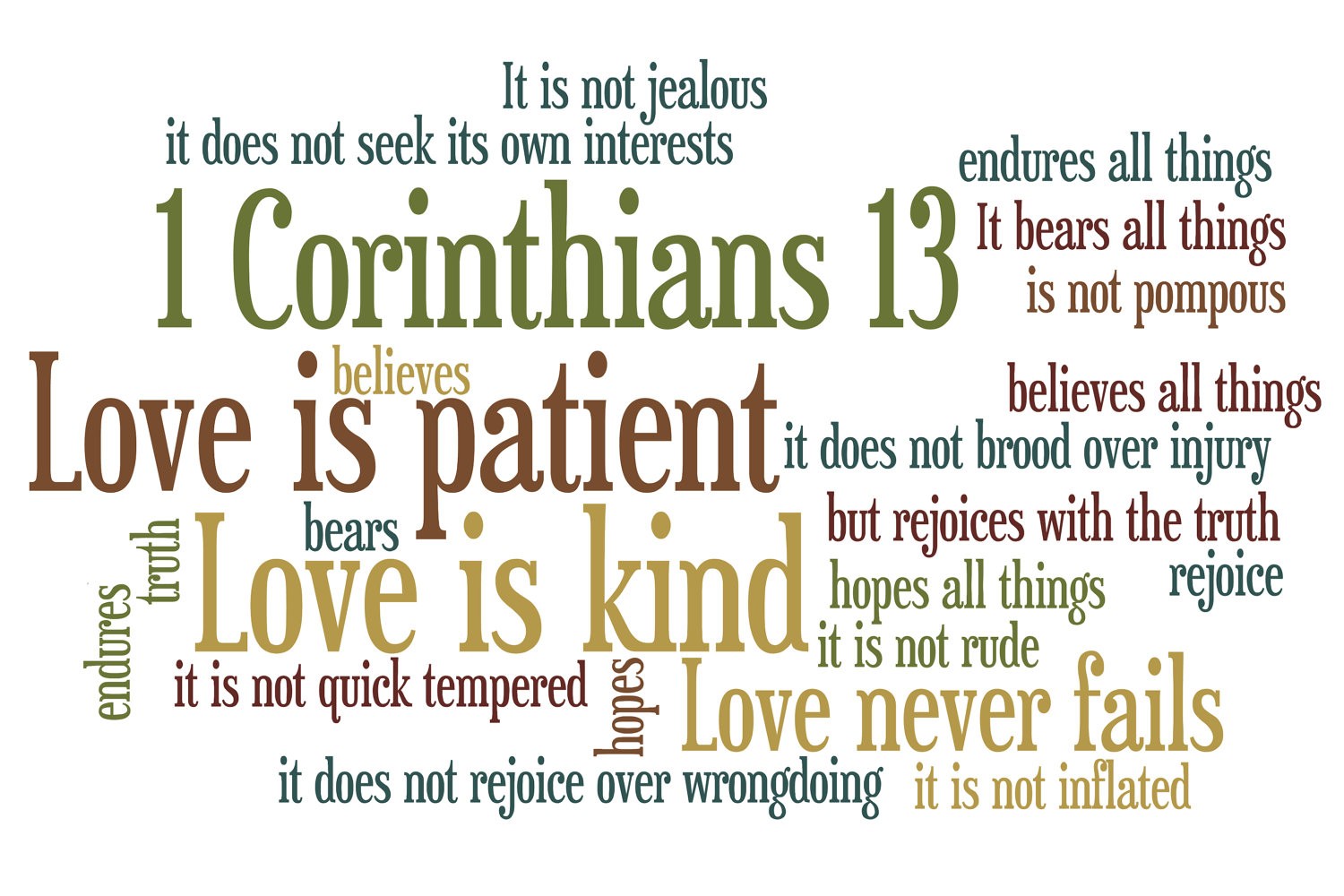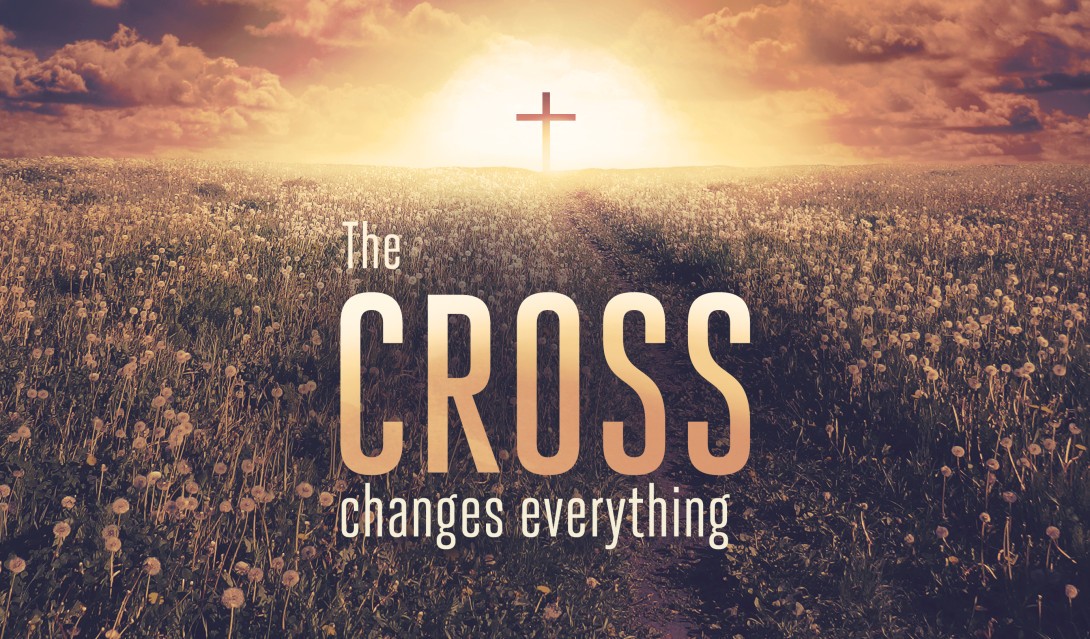BTC Phase 3: Lesson 4
Religion as a Complement to Spirituality
In this article, The Church is described as a State of Grace, rather than just a place, and we can “Be The Church,” everywhere we go, sharing God’s Love with everyone we meet as we walk in Mercy and hold to Grace.
Introduction: Though there is a role for “religion” in our society, it is very different from what comprises “spirituality”; and in fact, it is possible to be religious without being spiritual or we can be spiritual without being religious. Religion and spirituality can work well together when the focus of the gathering place we attend supports the development of our personal relationship with Christ (Spirit within us). So if we find ourselves looking for fellowship or a “home church,” it is critical to our growth and spiritual health to choose an organization that embraces our Freedom in Christ while encouraging us to walk in mercy while reaching for Grace (Spirit) as a way of life.
This lesson will look at both religion and spirituality as well as discuss what happens when people confuse religion for spirituality, often thinking that their “religious performance,” (i.e. following all of the practices of their group) represents all there is to being spiritual.
Defining “religion” as separate from “spirituality”: Does one have to be religious to walk with Jesus? This is a very relevant question and the answer is a definite “no.” Religion is the “man-made” or cultural way in which people have expressed their search for God or it can represent the manner in which some have “interpreted” their spiritual journey. “Spirituality” on the other hand, is a term representing a developing state of consciousness within us based on our personal connection with the Holy Spirit of God, whether we choose to join a religion…or not. Let’s explore this a little further.
Christianity reflecting a personal relationship with Christ: Christianity in its pure essence is not a “religion,” but “an experience” of a relationship with Christ (The Spirit of God); hence, “gatherings” (events) of Christians or “gathering places” (churches) for Christians have always been purposed to support the development of that relationship. Spiritual people (defined as those who walk in mercy and depend on the leading of the Spirit), in and out of a church setting, often choose to express their love for God and others within the framework of some sort of religious or cultural setting if they feel led to do so. But whether they belong to a group or not, they know that ceremonies, events, and rituals are secondary to the primary relationship which they engender with God, directly and personally on a 24/7 basis, in and out of the gathering.
The beginning of religions within the Body of Christ: To understand the difference between religion and spirituality it helps to learn a little history. For instance, Christians initially met in homes or small groups in the times of the early church, to pray together and encourage one another; and many lived communally. But starting at about 300 AD, as the persecution began to subside, organized religions started to form to respond to the growing numbers of people wanting to learn about Jesus. Thus, it was determined that a system should be formed to accommodate the people. Hence, conferences were held in order to “organize” and “re-prioritize” elements of their choosing from among the teachings of Jesus while adding in additional manmade practices and ceremonies as they saw fit at the time; and thus the traditional “church” was born, similar to what we see today.
As for the manner of rule for these new theocracies, the systems created often worked for the convenience of the newly-established church hierarchy which moved in lockstep with monarchies for governing and taxation purposes. As a point of history, some of the original “church leaders” held a dual role of being “ruler of the land” as well as “ruler of the church.” People born into this time of “church rule” were not exactly offered any other choices; and questioning “church authority” could lead to severe punishment or death.
But the efforts of these “organizers & rulers” did not go unchallenged. Over the centuries, disagreements developed among the people which led to various splits within the Body, giving believers new options.
Reformation throughout the centuries: One very famous reformationist was Martin Luther who believed strongly that no “priest” is needed to intervene on our behalf (between ourselves and God); and Luther believed that all people should have access to the Scriptures, to read for themselves what is taught on the pages therein. Of course he and others who followed after him with similar views, were met with great opposition, since a lot of power, control, and money were “at stake.” Many, who questioned the values and motives of the churches of their time, were tortured, imprisoned, or even burned alive. This is not a charming segment of church history, but one from which we can still learn, praying that we do not make the same mistakes again.
Many “ists” and “isms”: Since the establishment of the first “religions,” thousands upon thousands of so-called “versions of Christianity” or “denominations” have sprung up. Yet, in spite of all of the different “doctrines, books, practices, and creeds” which have been added to the Body, “becoming Christ-like” still involves the simple, but challenging process of learning to walk in mercy while holding to Grace (Holy Spirit).
“So might grace reign through righteousness unto eternal life by Jesus Christ our Lord.” Romans 5:21 (KJV)
So, now that I know that religion and spirituality are different, what can religion offer me? Religion, regardless of the denomination, typically provides fellowship as well as activities and rituals which settle the focus on God or which help us celebrate special occasions. However, religion in and of itself, does not have the ability to invoke a full “nature change” (from a flesh-minded soul to spiritual). That kind of transformation takes the Spirit (Grace) operating within the person.
The measure of a changed soul: For instance, any of us can say “Amen” at the right time during a religious service, toss a “tenth” of our income into the offering basket, and then “check” that whole chore off of our “to do” list for the week without having experienced much of anything in the way of connecting with the Spirit of God. We can show up regularly at religious events, we can participate in rituals, and we can even memorize and quote copious amounts of Scriptures at an impressive speed. But what is the measure of what we have learned? More importantly, what do we understand and apply in our everyday life?
Sharing God’s Love everywhere we go: To answer those questions, maybe we need to examine the “applied result” of our time in church and consider for instance, how we treat others after we file out of the weekly service. Do we show courtesy and patience to others as we depart or are we among those barreling out of the parking lot to get to our next stop, tossing trash out the window as we tail-gate at an illegal speed along the roadway with a phone in one hand and a finger ready to text in the other? Are we among those “church people” who converge upon restaurants each Sunday between 1 and 3 pm who are known for their love or are we among those who leave a mess and no tip, but maybe we left a little brochure instead that asked the reader if they were going to heaven or hell if they died that night? For that matter, did we even address our server with kindness and notice their good work? Did we leave them with a sense of their value as a human being? Did we leave behind, the sweet aroma of the love of Jesus? Hummm.
“Wherefore by their fruits ye shall know them.” Matthew 7:20 (KJV)
Religion or a religious environment can help with our spiritual development as stated already in this lesson, but in keeping with the end goal, our purpose in joining a neighborhood 501c3 must be, to deepen our personal relationship with Christ as we learn to live by the Two Commandments of “Love God and Love Others,” and so that theme is what we need to be looking for among those whom we wish to fellowship with, whether this would be in seeking a “church home” or “cell-ministry” of some kind.
So, do I have to go to church if I am a Christian? Hebrews 10:25 (KJV) suggests that we should not “forsake the assembling of ourselves together”; and some legalists believe that this is the “rule” which tells us to “get to church without fail” whenever the church doors open. But if you read the previous verse, you’ll see that what is actually being discussed in this passage is… that we should not “forsake” the “purpose of the gathering” which is to offer encouragement to one another, specifically to “provoke unto love and to good works.” In verse 25, we also see a mention of “exhorting one another,” which is a way of suggesting that we should be a source of encouragement to one another, whenever or wherever we gather together. Let’s look at those verses together now:
“And let us consider one another to provoke unto love and to good works: Not forsaking the assembling of ourselves together, as the manner of some is; but exhorting one another: and so much the more, as ye see the day approaching.” Hebrews 10:24-25 (KJV)
So, while the Hebrew was under commandment to observe the Sabbath as part of their Covenant with God, we of the New Testament have slightly different reasons for participating in services and our instructions extend to how we are to love one another every day and everywhere we go, as “The Church.”
We “Go to church” to “Become The Church”: For us in the Body, the purpose of attending “church” on the outside is to help develop the “Church within us” on the inside. So, having an appropriate “church home” can indeed be a blessing “if”… the priorities, focus, agenda, motive, and purpose of the “church” remains focused on the both “Written Word” and most especially, the “Living Word” (Spirit) and thus functions “in order.” It is also important to find a great emphasis on hospitality and charity.
More benefits of gathering with others: Jesus left us with two special commandments which emphasize putting God first in our lives and He did express many times, how we should love one another. Matthew 22: 37-40 (KJV) tells us: “Jesus said unto him, Thou shalt love the Lord thy God with all thy heart, and with all thy soul, and with all thy mind. This is the first and great commandment. And the second is like unto it, Thou shalt love thy neighbour as thyself. On these two commandments hang all the law and the prophets.”
Regarding “Love God”: One way we can show love for God is to start each week (as well as each day) by focusing fully on our relationship with Him, while allowing the cares of the world to take a back seat for a few hours. This habit can truly refresh a heart and soul, invoke a more relaxed state, and set up the conditions which allow one to take in the peace of God. However, there is no rule in Scripture for New Covenant Christians about “where” this has to take place or what day of the week, for that matter.
“One man esteemeth one day above another: another esteemeth every day alike. Let every man be fully persuaded in his own mind.” Romans 14:5 (KJV)
Regarding “Love Others”: One of the ways we can show love for people is to “be there” for one another, offering our supportive hand of fellowship when needed. Being a part of a “church” or gathering place can be helpful with this aspiration since it is harder to give and receive fellowship when folks are isolated from one another. However, we can express the love of God and others (and should do so) everywhere we go and with everyone we meet.
Micro Churches & Cell Ministries: When it is a challenge to find a “church home” that is operating in love without all the “added” legalism, or if we just prefer a small group to meet with, then we can still gather with friends and family to study, sing, talk, pray, and enjoy the presence of God right in one’s home, in a park or some other appropriate setting. These small “assemblies” are sometimes called, “Home Churches,” “Micro Churches” or “Cell Ministries.”
This is the way that many of the first Christians would meet, that is, until their numbers grew large enough to require greater spaces; this eventually brought about the elements of our traditional “churches” and “church services” which we still find today.
Is a big church or little church best for me? The “church” on the outside, no matter how many members, is really only as effective as the depth of experience and commitment on the inside. So as you continue to earnestly seek God, you need not be concerned about “missing God” by fellowshipping in smaller groups. There are benefits of gathering in smaller groups just as there are other benefits for joining larger assemblies. Either setting, in the right season of your growth, can be wonderful.
For a season or a reason: Another possibility of what you could experience in your search for a “church home,” is that you might actually feel called to sit in the pews of a particular gathering place where you in fact, “don’t exactly jive” with every practice or belief there. But perhaps God might have you there, to observe, to pray, and learn some things; or perhaps you’ll feel led to remain for a season because you recognize the benefits for one or more of your other family members, such as for your children or your spouse.
“There is one body, and one Spirit, even as ye are called in one hope of your calling; One Lord, one faith, one Baptism; One God and Father of all, who is above all, and through all, and in you all. But unto every one of us is given grace according to the measure of the gift of Christ.” Ephesians 4:4-7 (KJV)
Is “The Church” a place or a “State of Grace”? So, by now, in reading this article as well as other BTC Lessons, you have probably understood, that though it can be a blessing to have a church home or gathering place where we feel comfortable and where our growth is supported, the real work of spirituality happens on the inside of us. The outer “practices” or “places” where we assemble may or may not aide in the development of a “spiritual nature.” Also, though we are grateful that God is still being lifted up through church gatherings across the USA and around the world, we have discussed how some of the “outer effects” can at times, actually detract from the development of a spiritual nature or even retard growth altogether by mixing Covenants or in other words, by re-yoking folks to carnal or religious laws rather than teaching them to be led by the Spirit.
The Church on the Rock: According to Scripture, the “Church” is something Jesus told us that He “would build” on the Rock:
“And I say also unto thee, That thou art Peter, and upon this rock I will build my church; and the gates of hell shall not prevail against it.” Matthew 16:18 (KJV)
The Rock points to Christ; and The Church was still future-tense (will build) since the Spirit had not yet been given at the time of this conversation with Peter.
“And did all drink the same spiritual drink: for they drank of that spiritual Rock that followed them: and that Rock was Christ.” 1 Corinthians 10:4 (KJV)
Knowing the Greek for certain words can be helpful in understanding the meaning of any given verse of Scripture and in this case, the name Peter (Petros) means a Piece of the Rock (plural) while the word “Rock” in this verse is the Greek “Petra” meaning “a great rock” showing that Peter himself is not “The Rock” that Jesus was referring to in the verse of Scripture, but Peter was a piece of it as other disciples were as well.
So would there be a building fund at some point for that “Church” which Jesus spoke of? Guess not; but we are learning here, that “becoming His Church” comes at a different kind of price than what money from a bank could loan us. This is a price which Jesus paid for us at the Cross but we have a price to pay too:
“If ye love me, keep my commandments.” John 14:15 (KJV)
So, yes, “our part” with regard to the building of The Church within us, is to submit to the leading of the Spirit in order to “die to the old” and become “New in Christ.” Our relationship with the Living Word produces the change within us which can then be seen on the outside of us in the form of “Fruit of the Spirit.” Thus, those who walk by Mercy and hold to Grace become the living “Church of God.”
By the way, with regard to the use of future tense with the words in Matthew 16:18, “will build,” we all know at this point in our studies how important Mercy is to Jesus, but for those who know what was given at Pentecost, well… as of that Great Day, all of us in the Body can now experience “Christ within” or that “Gift of Grace” for ourselves. Therefore, we celebrate Pentecost as the “Birth of The Church.”
So, Jesus created the foundation for Grace with his teaching of Mercy during his years in service on earth; and with the arrival of Grace, we can put the two elements together (Mercy and Grace) so we can become what is “The Church” on the Rock of Christ.
I get it now! There may be many “churches” (gathering places) on the Rock (in the Body) but only “One Church” which is “being built” and then carried within those who follow the leading of the Spirit; and by the way, these are the ones who are “known by their Fruit.”
In taking this further, one can belong to a “church” and still not be part of “The Church,”….that is… if there is no personal relationship with the Spirit, or if “Fruit” cannot be found flowing from those members. Conversely, one may not currently be warming the pews of a specific “church” in the neighborhood and yet, due to one’s direct relationship with the Spirit, it is still possible to be a part of “The Church,”…that is, if one is walking in Mercy and holding to Grace (The Spirit).
The Church with a big “C”: So for the purpose of maintaining clarity throughout the rest of our BTC Lessons, when referring to “The Church” being built within us by the Spirit, a big, “C” will be used. When discussing “gathering places,” a little “c” will be used to begin the word, “church.”
The Foundation of True Spirituality: To recap, whether any of us enjoy the practice of traditions and rituals or not, the “Foundation” of our “Spirituality” must originate from a personal relationship with the Spirit of God. Yet, there need not be a conflict between honoring certain “traditions” as a cultured people (such as celebrating Christmas), while still remaining seated in the Spirit, knowing that whatever we “do” can be an expression of Love arising from the intimacy of our relationship with God. Being with other lovers of God can also provide relevant companionship and encouragement throughout the seasons of our lives.
Unity from a Foundation of Grace: So, we give thanks for our churches, for our cultures, and our religions that have enriched our lives greatly and brought us meaningful diversity to celebrate. However, at the core of the human experience is the opportunity to embrace God as the Source of Life and Love and to experience not only our cultural and religious diversity, but our Unity, as we dwell together in the presence of the Spirit of God; and it is through the Resurrection Power of Grace that we can know this. From that Foundation of Grace, we are just at the beginning of what we might experience in the way of connecting to one another through the heart.
“I therefore, the prisoner of the Lord, beseech you that ye walk worthy of the vocation wherewith ye are called, With all lowliness and meekness, with longsuffering, forbearing one another in love; Endeavouring to keep the unity of the Spirit in the bond of peace. There is one body, and one Spirit, even as ye are called in one hope of your calling; One Lord, one faith, one baptism, One God and Father of all, who is above all, and through all, and in you all.” Ephesians 4:1-6 (KJV)
“Religion as a Complement to Spirituality” by Ann M. Wolf © 2016, All rights reserved.










